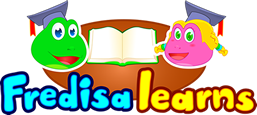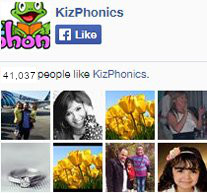The Magic of Word Scramblers in Phonics Education
In the digital age, word scramblers have become an educational tool that offers both fun and learning simultaneously. Children find it exciting to scramble the words, unscramble them, and in the process, enhance their phonics skills. Let's dive into how these games help in phonics education and why they are a favorite among educators and students alike.
The Joy of Scrambling Words
Imagine being handed a jumble of letters and finding the hidden word within. This is the essence of a word scrambler. Not only does it challenge a child's cognitive abilities, but it also reinforces phonics knowledge. When kids attempt to scramble words or try to decode a scrambled word, they are essentially revisiting phonemes, blends, and diagraphs, strengthening their foundational reading skills.
Choosing the Right Words to Scramble
While virtually any word can be a candidate for a good scramble, some words pose more of a challenge than others. Words with common phonics patterns, like CVC or CCVCC, can be excellent choices. Further, by selecting age-appropriate words to scramble, educators can ensure that children find the activity both challenging and achievable.
From Scrambled Word to Fluent Reading
Every time a child engages with a word scramble, they're doing more than just solving a puzzle. They're reinforcing letter-sound relationships, enhancing their decoding skills, and building confidence. Over time, consistent engagement with such activities can significantly improve a child's fluency and comprehension.
Benefits of Word Scramble Activities
Vocabulary Building: As children unscramble words, they inadvertently expand their vocabulary.
Enhanced Cognitive Skills: Scramble word activities help in improving memory, attention to detail, and problem-solving abilities.
Interactive Learning: In today's digital age, interactive word scramblers, like those you might find on Kizphonics, make learning more engaging.
Spelling Reinforcement: Continuously working with scramble words can significantly improve a child's spelling skills.
Fact Section: FAQs
Q: What is the primary educational benefit of word scramblers?
A: Word scramblers primarily enhance phonics knowledge, decoding skills, and vocabulary.
Q: Can word scramblers be used for older children?
A: Yes, by choosing advanced words to scramble, even older children can find the activity engaging and challenging.
Q: Where can I find interactive word scramblers for children?
A: Interactive word scramblers can be found on many educational platforms, like Kizphonics, which combine fun with learning.
In conclusion, the humble word scrambler, often seen as just a game, is a potent tool in phonics education. Whether you're an educator looking to spruce up your teaching methods or a parent seeking fun learning activities, word scramblers are worth integrating into your toolkit. Happy unscrambling!










